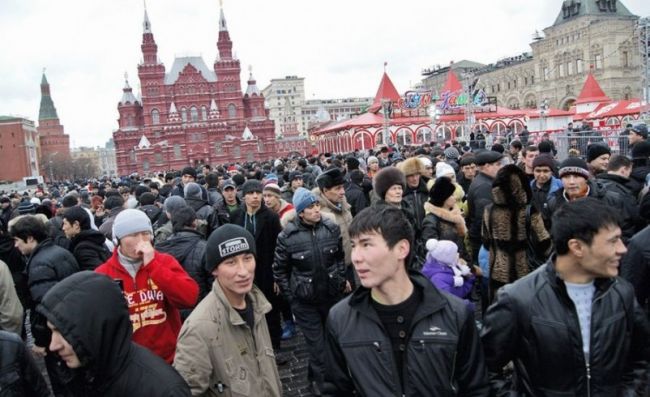The list of information about migrants in the unified population data register is planned to be expanded. It will include information about foreigners staying in the country for a short time. The purpose of the experiment is to estimate how many of them stay for a long time and how many are illegal, RBC news agency reports today, August 26.
The authorities are going to expand the list of information about foreign citizens and stateless persons contained in the federal population register — a single resource of information about all residents of Russia. The contract for the relevant work was posted on the public procurement portal by the Federal Tax Service (FTS).
It is assumed that the register will include data on foreigners staying in Russia for a short time (up to 90 days within six months). To date, it reflects information only about long-term migrants in the country, that is, about those who live or work.
The reason for the work was the instruction of the head of government Mikhail Mishustin following the results of the strategic session "Migration Policy", indicated in the description of the purchase. The contract value is 70.85 million rubles.
Currently, foreigners (tourists, business or guest visits, humanitarian visas, etc.) whose maximum stay in Russia is limited to 90 days are not registered in the Unified Population Register ( <url>), the press service of the Federal Tax Service explained.
"Thus, the INTERNET now covers only the permanent population of the country," they added.
The purpose of the work is to test the registration in the unified register of information on the population of data on foreigners and stateless persons staying in Russia for a short time, and the formation of their "reference profiles". It is assumed that such a profile will include the following information:
· information about crossing the border of Russia and documents confirming the right of foreigners to stay;
· data on the issuance of work permits or employment patents, their extension or cancellation;
· Information on the issuance of a residence permit or temporary residence permit;
· information on the issuance of a refugee certificate, a certificate of temporary asylum in Russia;
· Data on the issuance of temporary identity cards to stateless persons.
In addition, it is planned to monitor whether foreigners have registered with the tax authorities, whether they have registered in the compulsory pension insurance system and in the unified register of insured persons in the compulsory health insurance system.
The contractor will have to ensure the collection and calculation of statistics on short-term arrivals in Russia to persons with the ability to promptly obtain up-to-date information on them, indicated in the purchase. Requests from the authorities may be as follows:
· Top 5 entry goals;
· Average length of stay;
· total number of profiles created based on border crossing information;
· The number of persons who entered the country and did not leave after 90 days from the date of arrival;
· The number of people who have crossed the border multiple times;
· the number of profiles that are not enriched with any additional document or identifier (such profiles are called the "skinny standard" in the purchase).
It is assumed that the work should be completed by November 15, 2024. Approbation of their results will take place within the framework of a pilot project, follows from the procurement materials.
The purpose of the experiment is to assess how foreigners who entered initially for short-term purposes later change their stay goals to long-term ones or acquire Russian citizenship, and how appropriate it is to assign them a unique identifier (IDD) at the entry stage, the Federal Tax Service reported. According to the results of the experiment, which is due to end in March 2025, a report will be sent to the Russian government, it "may contain recommendations on both expanding and preserving the categories of persons included in the "perimeter"," the Federal Tax Service said.
Earlier, the authorities developed an action plan to implement the concept of migration policy in Russia for 2024-2025. It involves, in particular, the creation of a digital profile of a foreign citizen by December 10, 2024. As part of this plan, a foreigner will be registered in the system even before entering the territory of Russia, Interior Minister Vladimir Kolokoltsev explained. This will make it possible to aggregate migration records in different departmental systems and improve the statistical tools for monitoring migration.

 Zelensky in Rome agreed with Trump in everything and promised to observe the truce — insider
Zelensky in Rome agreed with Trump in everything and promised to observe the truce — insider The Ukrainian side reported on the use by Russia of the new Banderol UAV
The Ukrainian side reported on the use by Russia of the new Banderol UAV The Iranian port of Bandar Abbas stopped work after a powerful explosion — Tasnim
The Iranian port of Bandar Abbas stopped work after a powerful explosion — Tasnim Zelensky: Ukraine does not have enough weapons to seize Crimea
Zelensky: Ukraine does not have enough weapons to seize Crimea I shouldn't have gone there at all: For the USA on There is no victory for Ukraine — McGregor
I shouldn't have gone there at all: For the USA on There is no victory for Ukraine — McGregor